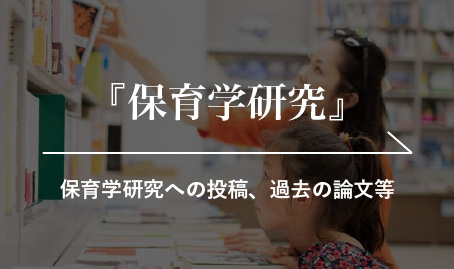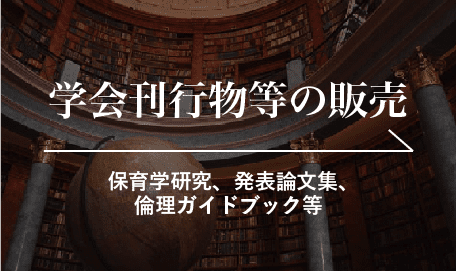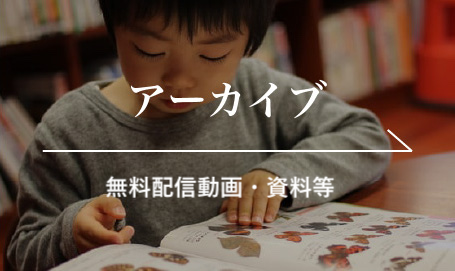Author(s): Mori Takumi, Nakano Keiko and Sakai Sachiko.
Title: Clarifying Success Factors of Consultations Leading Childcare Workers toward Self-Directed Practice : Focusing on the “Progressive Effects” Following Consultations.
Research on Early Childhood Care and Education in Japan, 2013, 51(3), 368-378.
Abstract: The purpose of this study is to clarify success factors of consultations that lead childcare workers to self-directed practice. Records from actual consultations were analyzed to examine how childcare workers deliberated over the advice, given by specialists in collaborative consultations, and how they applied it to their treatment of children with special needs. As a result, the analysis indicates that the following factors will bring about a successful collaborative partnership: 1) working to calm down the childcare worker’s impatience, 2) verbally defining the meaning of children’s behaviors, and 3) encouraging childcare workers to form self-directed judgements and proposing loose alternative choices for practice. Furthermore, it is found that applying appropriate treatment and educational practice for children with special needs functions as an effective means to improve childcare workers’ overall expertise.
Keywords: consultation, childcare worker self-directed practice, organizing collaborative partnership, children with special needs
—————–
Author(s): Matsui Gota.
Title: The Meaning of “Play as Hoiku” for Children with Special Needs : A Critical Review of “Play at Deficit Theory”.
Research on Early Childhood Care and Education in Japan, 2013, 51(3), 295-306.
Abstract: The purpose of this study was to submit suggestions that all children can enjoy play in inclusive settings. I analyzed from the case of practices in departments of early childhood in special support school. The results were as follows: (1) get rid of deficit theory to improvement of play, (2) pay attention to the playing disposition of individual children, (3) think about structured settings to get absorbed play, (4) rethink the role of teacher to include “Nori” in classroom. Finally, I submitted that the development of the form of individualized teaching plans fitted in preschools and kindergartens to get rid of deficit theory.
Keywords: children with special needs, play, deficit theory
—————–
Author(s): Ranaka Ken.
Title: Research on the History “Early Childhood Education for Children with Special Needs in Kindergarten” in Japan : Focusing on the “Support System in Kindergarten” from 1960s to the 1970s.
Research on Early Childhood Care and Education in Japan, 2013, 51(3), 307-317.
Abstract: The purpose of this research is to perform examination about the support system in kindergarten from the viewpoint of young children with disabilities. This research especially examined by focusing on the kindergarten of the 1960~70s. The following three points were proved from the result. (1) Accepting young children with disabilities in kindergarten was realized by guardians’ demand. (2) In kindergarten, adopting education and care of young children with disabilities had lead their practice to become more substantial as opposed to their former practice of emphasizing conformity among children. (3) The change of the support system in kindergarten had arisen by implementation of inclusive education and care of young children with disabilities.
Keywords: support system in kindergarten, young children with disabilities, kindergarten, special class, corner
—————–
Author(s): Kondo Mieko and Yamamoto Rie.
Title: A Study on the Support for the Development of Infants with Autism Spectrum Disorders through the Reading of Picture Books to a Small Group : Analyzing this Practice, Focused on Joint Attention and Shared Emotion.
Research on Early Childhood Care and Education in Japan, 2013, 51(3), 318-330.
Abstract: The purpose of this study is to clarify how to support the development of 2-3 years-old children with Autism Spectrum Disorder by analyzing the practice of reading picture books in a facility for children with disorders. Focused on joint attention and shared emotion, the results suggest that the following is important: 1) to tie the things which each child likes with the picture books, and continue to read every day to the children, 2) to read at the same time, in the same style, in a pleasant atmosphere, in order to make it easy for the children to understand the situation and become glad to be praised for their progress, 3) for a child to consciously make a triad relation- ship with a particular adult who is close to them, physically and emotionally, and have joint attention through the activities.
Keywords: infants with autism spectrum disorders, reading of picture books to a small group, clearly understandable life, joint attention and shared emotion
—————–
Author(s): Hamatani Naoto, Igarashi Motoko, Ashizawa Kiyone.
Title: A Case Study of Making a Preschool Class Inclusive : Restructuring the Relationship between a Child with Special Needs and His Classmates.
Research on Early Childhood Care and Education in Japan, 2013, 51(3), 331-342.
Abstract: In this case study, we described the process in which an isolated child with special needs was included into his preschool class, and the class became inclusive, focusing on the relationship with the child and his classmates. At the initial stage, he was excluded consciously by some children who were leaders of small cohesive groups, and was in isolation in his class. Introducing various activities, the teacher continuously attempted to make different relationships among children. At last, the strongly connected members of groups were disorganized, and new multiple friendships were built. In the process of realizing inclusion, not only the isolated child, but also the child who excluded him had changed to become friendly to others. These findings give us a new perspective in the study of inclusive preschool education.
Keywords: inclusion, exclusive relationship, child with special needs, preschool class, activity
—————–
Author(s): Manabe Ken.
Title: A Study about Development of Individualized Education Plan based on a Relationship between Preschool Teacher and External Supporter : Focusing on Assessment and Goal Development of Linked System.
Research on Early Childhood Care and Education in Japan, 2013, 51(3), 355-367.
Abstract: With development of the special needs education, the expectation for the individualized education plan increases. However, it indicated that there are some problems about appropriate goal development, identification of supports, and ways of connection between preschool teachers and specialists. In this study, the process from assessment to goal development was focused and the influence of a tool that could collect or summarize information about child with special needs was examined through the two case studies. The result suggests that both teachers and specialist should use assessment information to notice or find out the gap between teacher’s needs and child’s needs carefully.
Keywords: individualized education plan, Linked system, the linking assessment and goal development
—————–
Author(s): Abe Mihoko.
Title: Effect of “PANPS Consultation” (Consultation for Proactive Approaches of Nursery Teachers towards Problem Solving) on Efficacy of Childcare for Children with Special Needs.
Research on Early Childhood Care and Education in Japan, 2013, 51(3), 379-392.
Abstract: The purpose of this study is to examine the itinerant consultation service for nursery teachers to enhance their efficacy of childcare of children with special needs. The 12 people staff have developed a consultation system for proactive approaches of nursery teachers towards problem solving, and practiced itinerant consultation to 24 place nursery. According to the survey, efficacy of childcare for children with special needs of nursery teachers who participated in the consultation has been improved significantly after the itinerant consultation. Consciousness of nursery teachers was transformed into protagonist of childcare from reliance on experts. In addition, “behavioral analysis and support form” could help proactive approaches of nursery teachers and became a tool that can contribute to the creation of nursery’s support systems for childcare of children with special needs.
Keywords: children with special needs, itinerant consultation service, childcare consultation, efficacy of childcare, improve professional childcare
—————–
Author(s): Sato Chie.
Title: Research on a Child Who Is in Transition from a Nursery School to an Elementary School : Based on a Qualitative Analysis of Narratives with Parent, a Nursery Teacher, and an Elementary School Teacher.
Research on Early Childhood Care and Education in Japan, 2013, 51(3), 393-403.
Abstract: The purpose of this research is to describe various aspects of educational transition experienced by a child with special needs. I performed a qualitative analysis on a particular child with special needs who went through the transition from a nursery school to an elementary school, including analysis of interviews with his parent, nursery school teacher and elementary school teacher. I adopted semi-structured interviews for the analysis. The result revealed that each of persons had different perspective on a child, that a child had difficulties on the learning environment in the school, and that there was a difference between the nurses and the school teachers on the relationship with the parent. It is also considered that there exists differences between the nurses and the school teachers on adjusting the “child’s characteristics”.
Keywords: transition, children with special needs, qualitative analysis of narratives
—————–









